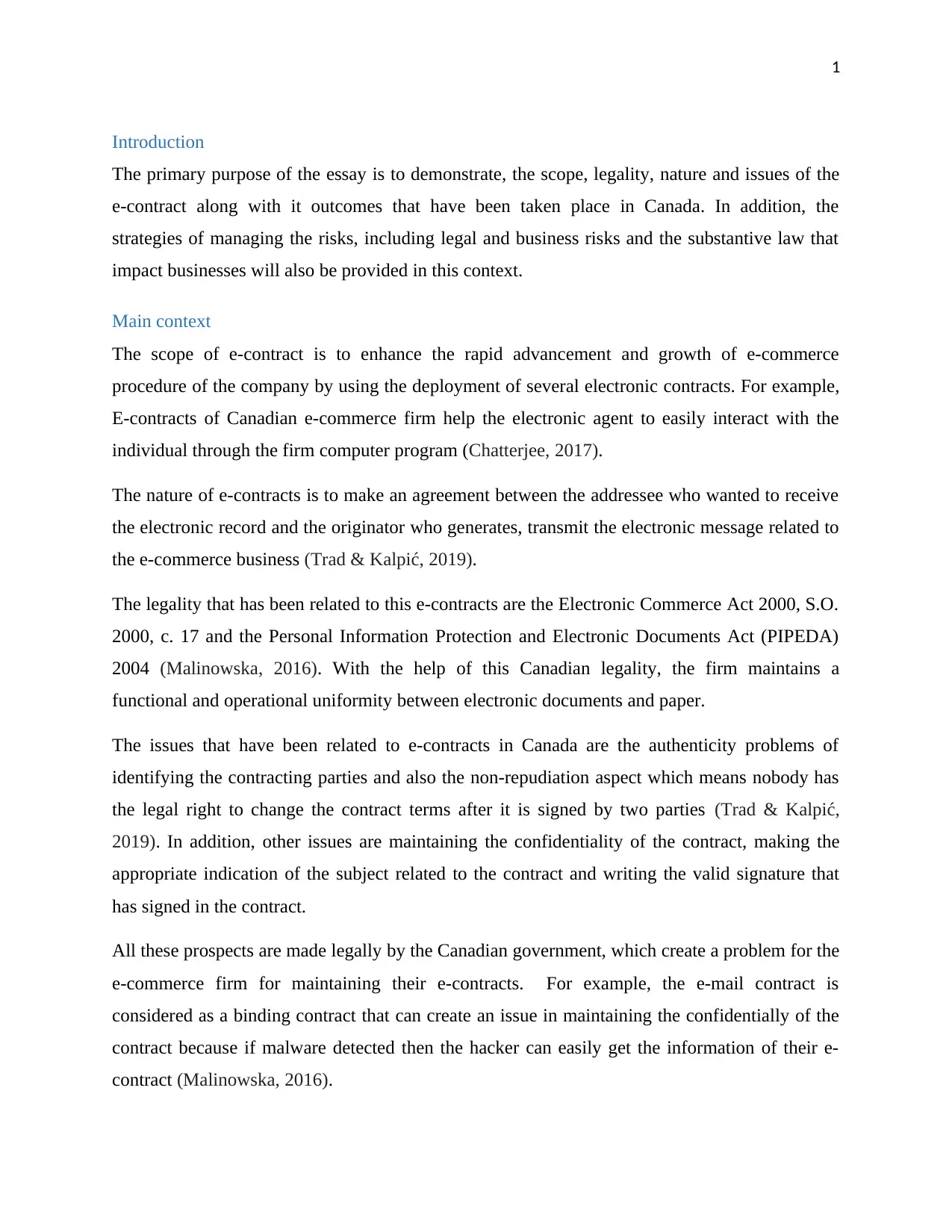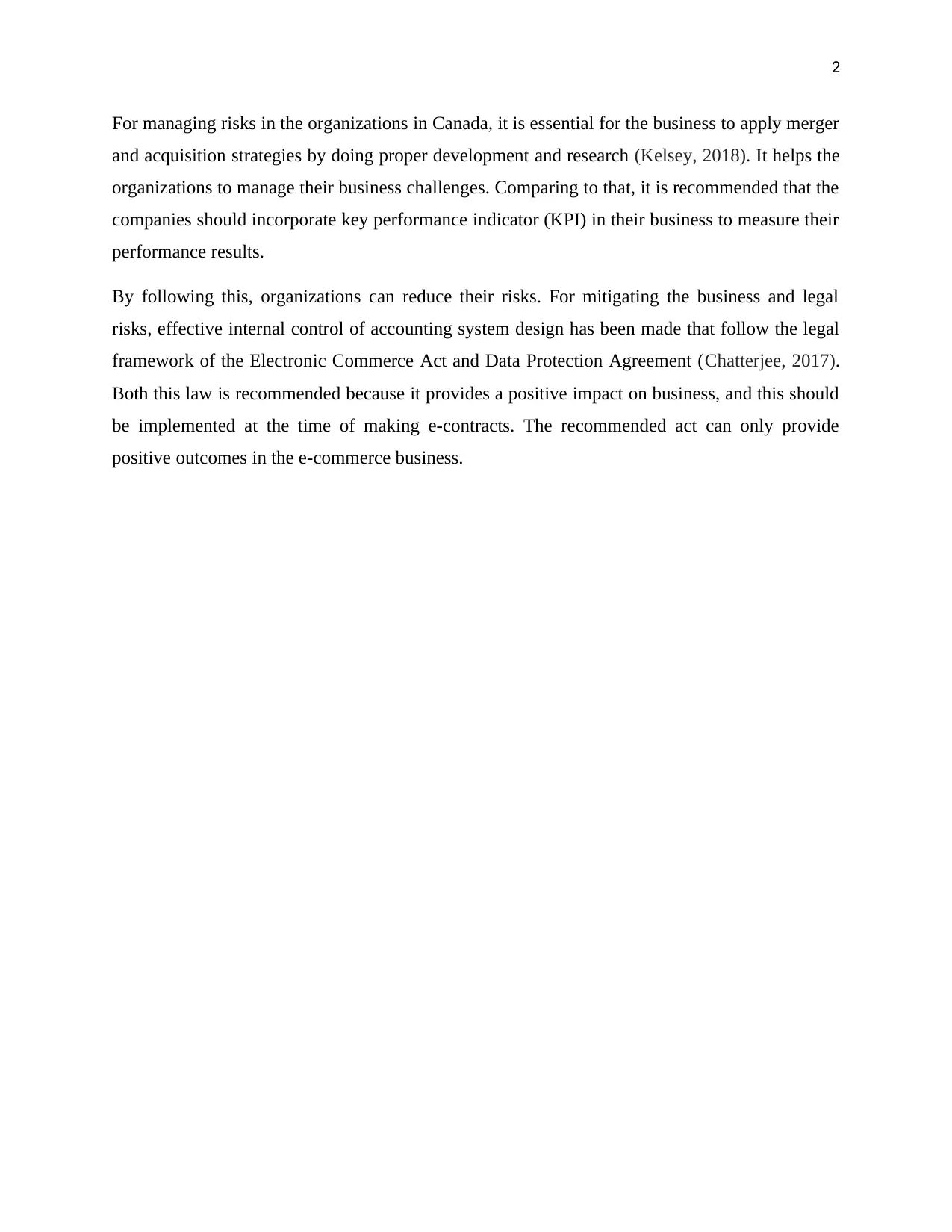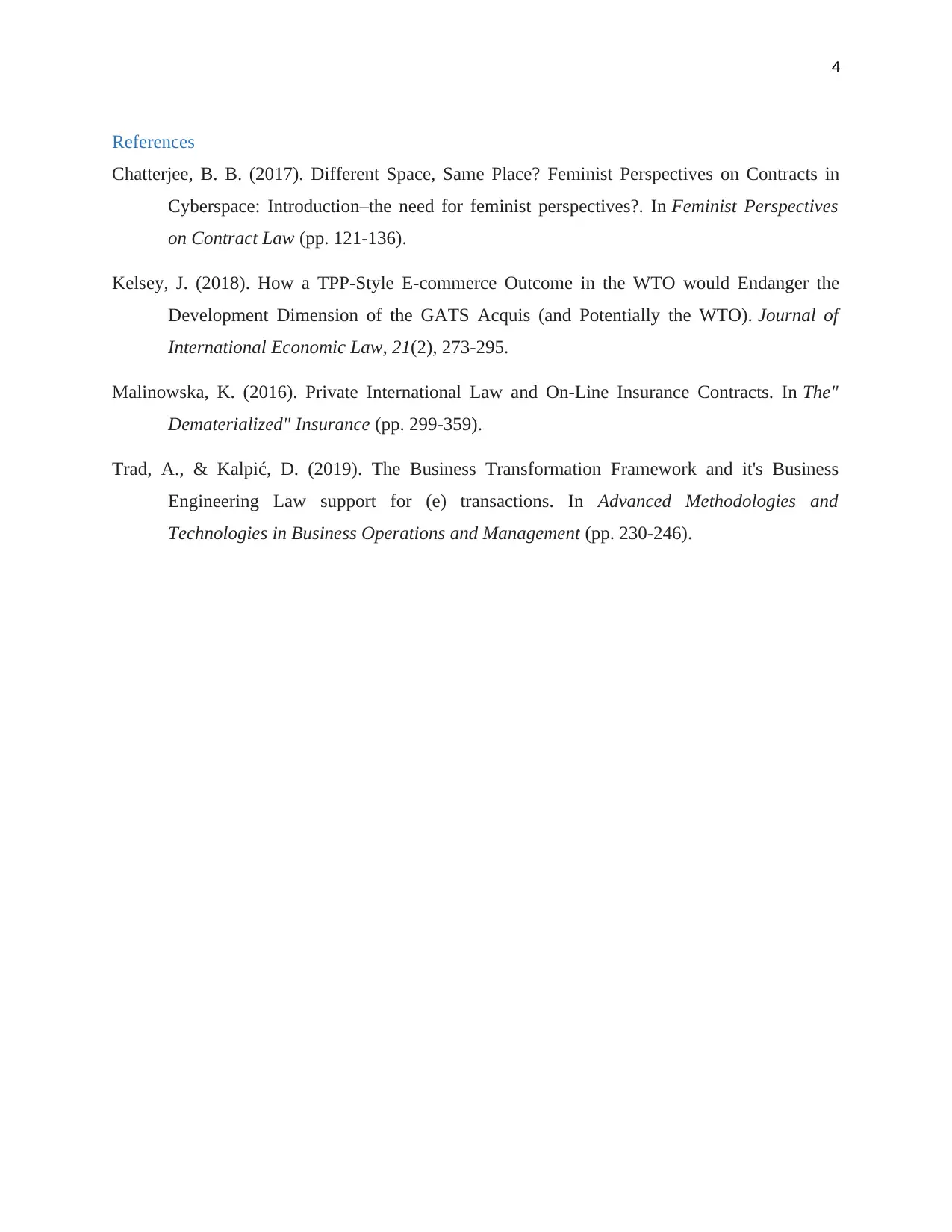Canadian Business Law: An Analysis of E-Contracts, Risks, and Legality
VerifiedAdded on 2022/11/30
|5
|766
|382
Essay
AI Summary
This essay provides an overview of e-contracts within the context of Canadian business law. It explores the scope of e-contracts in facilitating e-commerce, detailing the nature of agreements between parties and their legal implications. The essay examines the relevant legislation, including the Electronic Commerce Act 2000 and PIPEDA, and how these laws maintain uniformity between electronic and paper documents. It addresses key issues associated with e-contracts, such as authenticity, non-repudiation, confidentiality, and valid signatures, and their impact on businesses. Furthermore, the essay suggests risk management strategies, including merger and acquisition, KPI implementation, and effective internal control of accounting systems aligned with legal frameworks. The conclusion emphasizes the positive impact of e-contracts and relevant legislation on the growth of e-commerce businesses in Canada.
1 out of 5












![[object Object]](/_next/static/media/star-bottom.7253800d.svg)